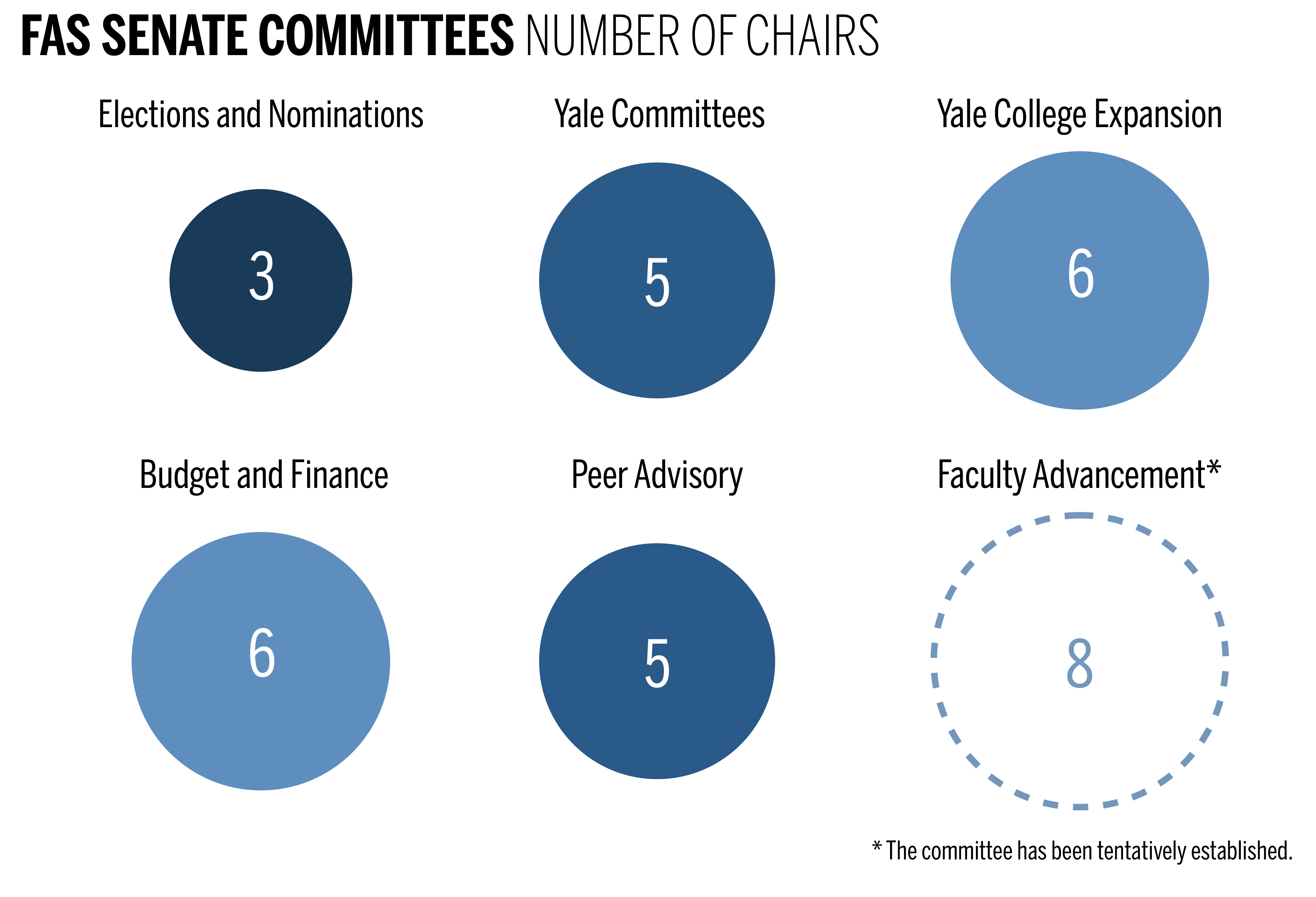
During the first official open meeting of the Faculty of Arts and Sciences Senate on Thursday, senators, FAS professors and administrators debated how the University will adjudicate complaints of violations of the Faculty Standards of Conduct.
The Senate, established in December 2013 to represent the interests of non-administrative FAS faculty, held its first meeting Sept. 10, but did not open the meetings to non-Senate faculty until this month. Most of the 22 senators, as well as about eight other faculty members, attended the meeting, according to Senate chair and history director of undergraduate studies Beverly Gage. The meeting’s most contentious moments came during a debate over a draft of the review procedures for faculty standards of conduct violations, written by an ad hoc committee convened by University President Peter Salovey and Provost Benjamin Polak in May 2014. Senators and faculty interviewed said there was a general sense of unease about the role administrators would play in the adjudication process if the current draft is approved.
“I am not comfortable with the draft procedure in its current form. It could be used in dangerous ways,” senior lector and senator Ruth Koizim said. “From our perspective, it is very much a work in progress and it has a long, long way to go before it resembles anything we would be comfortable with.”
The Faculty Standards of Conduct, which were drafted last fall and drew significant criticism from faculty, were finalized and presented in the updated Faculty Handbook in September. The committee must now turn its attention to the next phase of the standards: drafting the procedures the University will use to adjudicate alleged violations.
University Title IX Coordinator and Deputy Provost Stephanie Spangler and psychology professor Margaret Clark, who heads the ad hoc committee, presented the draft at the meeting.
The draft procedures, which were obtained by the News after the meeting, state that deans can initiate reviews if they perceive a conduct violation. Any member of the Yale community can bring a complaint as well, but the dean decides whether or not to proceed with a formal review.
More problematically for some faculty members, the draft procedures also state that, following a complaint, the dean of the respondent’s affiliated school will choose a five-person review panel to hear the case. The review panel will investigate the claim and submit a report to the dean, but the dean will have the final say on the complaint’s outcome.
“The dean may accept, modify, or reject the conclusions of the panel and any of its recommendations,” according to the draft procedures.
Faculty members interviewed said they took issue with several parts of the draft.
Koizim said the current draft is very open-ended and allows relevant administrators to override panel decisions. She said she fears the procedures could be used to retaliate against faculty members who are seen as annoyances by administrators.
History professor Glenda Gilmore, who raised her concerns at the meeting, said the procedures violate faculty members’ constitutional rights to due process, including the right to active counsel at trial and the right to hear and question witnesses.
Gilmore’s remarks at the meeting also highlighted deans’ influence over the review process, noting that the deans appoint the panel and may overrule the accused’s objection to anyone chosen for the panel. Also troubling, she suggested, is the dean’s role as final-decision maker.
Gilmore recommended that the faculty reject the Review Procedures.
It remains unclear how much influence the FAS Senate actually holds in the drafting of the review procedures. In an email to the News, Spangler wrote that the draft procedures will be reviewed by all University faculty, as was done with the Standards themselves. Part of that procedure, Spangler, said, includes forwarding the draft procedures to the Senate for discussion during its meeting.
Following the discussion, the Senate did not come to any conclusion or hold any vote, Gage said. Rather, members agreed to engage in open discussion about the topic at the next meeting.
“There is enough concern that it requires more discussion,” Gage said. “We hope to do some research on our own.”
She added that an informal committee may be set up within the Senate for this purpose.
Koizim, however, said she is not confident in how much impact the Senate’s input will have on the drafting of the procedures.
Besides debating the review procedures, faculty members at the meeting also raised concerns and queries with FAS dean Tamar Gendler. Topics of discussion included the relationship between Gendler’s office and the Senate, faculty salaries, planning for the new residential colleges and diversity initiatives. Gendler told the News she asked for the Senate’s advice about how best to circulate documents to members of the FAS for consultation.
Gage was positive about the relationship between the Senate and the FAS dean’s office, but added that the two bodies are still defining it.
“It’s a very good relationship,” Gage said. “We are still working out the issues that the dean can bring before the Senate and what kind of information the Senate can have access to from the dean’s office.”
Koizim said that while the administrative structure of University is murky, she sees Gendler as the main point of administrative contact and said Gendler’s office and the Senate share many concerns.
The Senate also made strides in establishing a new Committee on Faculty Advancement, which would consider the various forms of support for faculty members, ranging from research facilities to salaries. During the first Senate meeting in September, five committees were established, and the Senate has since chosen chairs for each of these.
The next FAS Senate meeting is scheduled for Nov. 19.
Correction: Sunday, Oct. 18: A previous version of this article incorrectly stated that a Committee on Faculty Advancement was only tentatively established. In fact, the committee was fully established.







